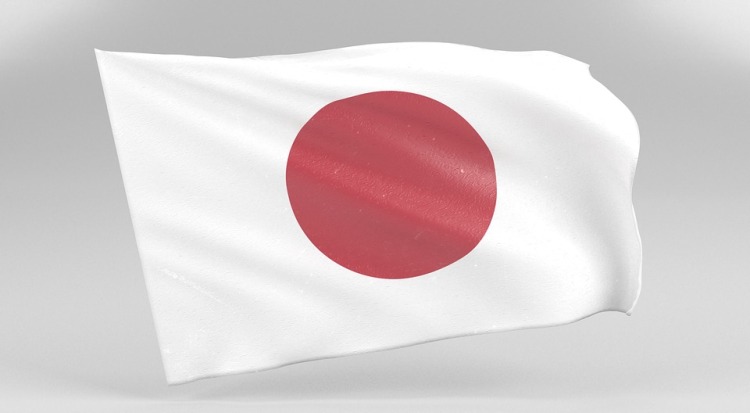IAEA Confirms Fukushima Water Discharge Meets Global Safety Standards
The finding comes as part of the IAEA’s ongoing independent monitoring and verification mission to ensure the safety and transparency of Japan’s decades-long water release process.

The International Atomic Energy Agency (IAEA) has confirmed that the latest batch of treated water discharged from Japan's Fukushima Daiichi Nuclear Power Station (FDNPS) meets international safety standards, with tritium concentrations well below Japan's regulatory limits. The finding comes as part of the IAEA's ongoing independent monitoring and verification mission to ensure the safety and transparency of Japan's decades-long water release process.
IAEA Verification of the 16th Batch
On October 31, 2025, the IAEA announced that its experts had conducted independent sampling and analysis of the 16th batch of treated water processed through the Advanced Liquid Processing System (ALPS). The samples were collected onsite at the Fukushima plant as the water was being prepared for discharge into the Pacific Ocean.
The results confirmed that tritium concentrations—the only radionuclide not removable by ALPS—were significantly lower than Japan's operational limit of 1,500 becquerels per litre. According to the IAEA, the measurements align fully with international radiological safety standards, reaffirming that the discharge poses no harm to people or the environment.
"The IAEA's independent analyses continue to confirm that Japan's releases of ALPS-treated water are consistent with the Agency's safety review findings and international standards," said IAEA Director General Rafael Mariano Grossi in a statement. "Our presence on the ground ensures transparency, accountability, and scientific verification."
Decade-Long Process Under Global Scrutiny
Japan began discharging the ALPS-treated water in August 2023, following years of technical assessments and consultations with international experts. The process is expected to continue for 30 to 40 years, as the water accumulated from the cooling of the damaged reactor cores at Fukushima since the 2011 nuclear disaster is gradually treated, diluted, and safely released.
The ALPS system removes almost all radionuclides from the contaminated water except for tritium, an isotope of hydrogen that is considered harmless in low concentrations due to its weak radiation and rapid dilution in seawater. Before each discharge, TEPCO—Japan's power utility operating the plant—dilutes the treated water with seawater to reduce tritium levels to well below national and international limits.
So far, about 117,700 cubic meters of water have been released through the first 15 batches. The IAEA has verified that each batch met safety standards and that monitoring data remained consistent with negligible environmental impact.
Scientific Oversight and Transparency
The IAEA has maintained a continuous onsite presence at the Fukushima plant since the discharge began. Its role includes independent sampling, cross-checking TEPCO's data, and publishing analytical results to the public. This oversight mechanism is part of a long-term multi-decade safety review, designed to build public trust and ensure accountability throughout the discharge process.
The agency's comprehensive July 2023 report, issued before the first release, concluded that Japan's plan was "consistent with international safety standards" and would have a "negligible radiological impact on people and the environment." This conclusion was based on technical evaluations by independent laboratories and external experts from multiple member states, including China, South Korea, and the United States.
The IAEA regularly publishes detailed sampling reports, data evaluations, and discharge timelines on its official website to provide transparent access to monitoring data for governments, scientists, and the public.
Local and International Context
Japan's water release plan, though endorsed by the IAEA and most international nuclear experts, has sparked political and environmental controversy, particularly among neighboring Pacific countries and local fishing communities. Concerns have centered on potential reputational damage to Japan's seafood industry and mistrust stemming from the Fukushima disaster's legacy.
In response, Japan has launched extensive public communication and compensation programs to reassure domestic and international stakeholders. The government has pledged continued transparency and cooperation with the IAEA throughout the discharge process.
Regional monitoring conducted by Japanese and South Korean research institutions has so far found no detectable radiological abnormalities in seawater or marine life. Ocean currents and tritium's weak radiological properties ensure rapid dispersion, further reducing any risk of concentration.
The Road Ahead
The IAEA's ongoing involvement marks a significant milestone in international nuclear oversight. By maintaining real-time verification and public reporting, the agency seeks to uphold confidence in the science-based management of Fukushima's post-disaster recovery.
"The world is watching how Japan and the IAEA handle this process," said a senior IAEA official. "Transparency and data integrity will remain our top priorities to ensure that all discharges meet the highest environmental and safety standards."
Japan's management of the Fukushima wastewater is being seen as a test case for global nuclear decommissioning practices. With over 1.3 million cubic meters of ALPS-treated water stored at the site, the gradual, carefully monitored discharge is viewed as both a technical and diplomatic balancing act—combining environmental safety with regional trust-building.
As the 16th batch confirms compliance once again, the IAEA reiterated its commitment to monitoring the discharge over the coming decades and ensuring that every phase meets the scientific and ethical standards of international nuclear safety.
ALSO READ
-
Springboks Seek Redemption Against Japan, Remembering the 'Miracle of Brighton'
-
Bridging Asia: Japan PM Takaichi Meets Xi for Historic Ties
-
Historic Meeting: Japan's First Female Prime Minister Meets Xi
-
Eddie Jones' Game Plan: Minimal Changes for Japan's Battle Against South Africa
-
South Korean, Japanese leaders vow to improve ties in face of global uncertainty









